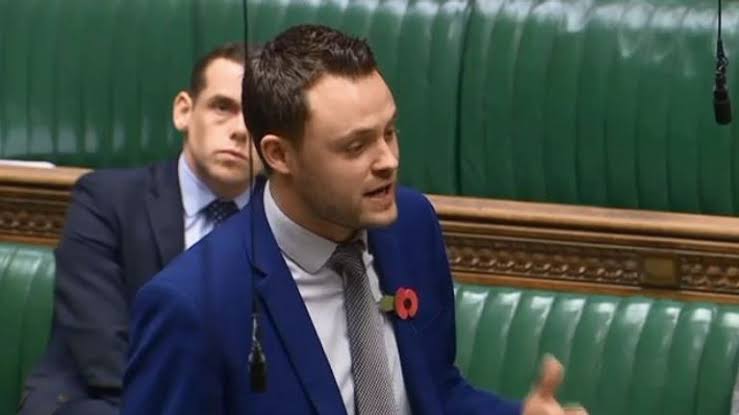London, (Parliament Politics Magazine) – When was the last time you read something that encouraged you to support men? All too often, conversations about men are shrouded in negativity surrounding ‘toxic masculinity’ or ‘male privilege’. These terms, bluntly, do my head in. I invite anyone who spouts on about ‘male privilege’ to come and visit my constituency in Mansfield and argue that the working-class boys from disadvantaged backgrounds are somehow ‘privileged’, despite statistically being the most likely to drop out of school with no qualifications, and most likely to take their own lives. All too often, men are viewed as oppressors rather than positive role models – I am determined to change the narrative.
Positive male role models need to be encouraged and celebrated, not shot down and told they are only in their position due to their ‘privilege’.
Nationally, we have 2.5 million children growing up in homes without a father figure. 30,000 children are being exposed to some sort of domestic abuse. It is frightening and means kids across the country are missing out on learning important lessons about gender, healthy relationships and positive interactions between men and women. So how can we get positive male role models into these kids’ lives?
One suggestion I’m passionate about is encouraging men to have careers in early years and primary education. As I said in my recent Westminster Hall debate on the issue, a lack of male teachers means a lack of male role models. Only 14.1% of primary and nursery teachers are male – significantly less than 1 in 5. In England, there are 3,240 schools without any male teachers at all. That means over one million children have no male role model in an education setting. Combine that with the stats previously mentioned and the chance of some kids having a positive male influence and mentor looks bleak both inside and outside of school.
I hope to break down the barriers that are preventing men from entering careers in children’s early education. Call me cynical, but if you turned the situation on its head and these statistics were about women then I’m sure we’d have acted by now to increase that figure and encourage more women into teaching.
People misunderstand and misuse the Equality Act. The Act is used to tackle inequalities and under-representation. Largely, it has been a force of good. For example, it is common knowledge that women are largely underrepresented in STEM careers, so a lot of work has gone into getting them on the career ladder and encouraging young women to take on STEM subjects at school. However, where is the same support for men in early years’ roles? It appears that the Equality Act applies to every demographic except for men. Why are we comfortable ignoring the underrepresentation of men, when we wouldn’t accept it for other groups?
The new Equality Minister, Kemi Badenoch, summed it up perfectly when she stated that the Equality Act should be “used as a shield not a sword”. We need to protect people from discrimination, not tear down other groups based upon false claims of ‘privilege’. The Act refers to ‘protected characteristics’ which are sex, sexuality and race. Unfortunately, people are not keen on details and the Act is often misinterpreted as meaning female, gay or BME. It works both ways. Female AND male, gay AND straight. That’s equality.
Our national discourse isn’t helping – particularly social media. Imagine being a young lad, unsure of your place in society and constantly called out for your gender without a positive male role model to turn to for support and advice. It would be life-changing for young men across the country if they had positive male role models in school who could act as a mentor for them, both educationally and socially. It is the same for young girls. How else are they meant to learn how to build positive relationships with men if they have no male role models in school or at home? It is a society-wide issue and cannot continue to fly under the radar.
In 2020, I opened the International Men’s Day debate in Parliament and paid tribute to positive male role models, particularly to good dads. I also highlighted some terrifying statistics regarding the fact that men are more likely to commit suicide, end up in prison, be alienated from their children – the list, sadly, goes on. However, my speech was met with a barrage of abuse and criticism for daring to celebrate “International Men’s Day”.
It upsets me that we are facing a time when it is seen to be controversial to celebrate men and positive male role models. How are we meant to inspire the next generation of men to succeed and make a positive contribution to society when you get torn down the minute you diverge from the popular narrative of ‘male privilege’ and dare highlight men’s issues?
In a world where there are so many young men feeling lost, I’m keen to stick my head above the parapet and speak up for those who don’t have a voice. Positive male role models make the world of difference and it’s vital we ensure ALL children have a positive male role model in their life. It is key to building a better society for everyone.


